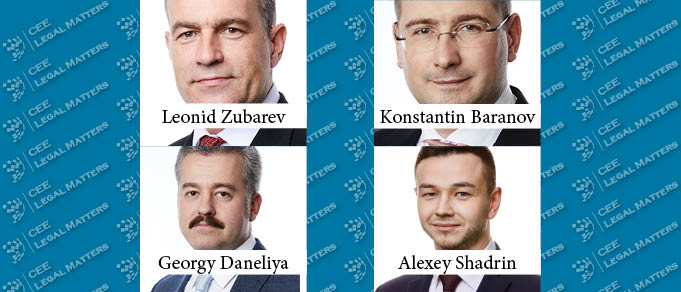A bill* that expands the application of sanctions by the Russian Federation and specifies the procedure for their application has been submitted to the Russian State Duma.
In particular, the bill:
-
clarifies the scope of individuals and entities (i.e. persons) subject to sanctions;
-
specifies the prohibitions on financial transactions by sanctioned persons; and
-
makes the revocation of a financial institution’s licence a sanction if the relevant requirements have been violated.
The bill under consideration amends Federal Law No. 281-FZ “On Economic Measures and Coercive Measures” dated 30 December 2006*, which regulates Russian sanctions in parallel with Federal Law No. 127-FZ “On Measures (Countermeasures) against Unfriendly Actions of the United States of America and Other Foreign States” dated 4 June 2018*, on which we reported earlier.
Scope of sanctioned persons
The bill proposes that sanctions imposed under Federal Law No. 281-FZ dated 30 December 2006 apply not only to persons included in sanctions lists, but also to persons controlled by such individuals and legal entities.
It further stipulates that companies are deemed controlled when 25% of a company’s votes directly or indirectly belong to a sanctioned person, including through a trust management agreement or a corporate agreement.
Financial transactions of sanctioned persons
The bill specifies measures aimed at freezing the assets of sanctioned persons and preventing the conclusion of financial transactions with such persons.
Under the bill, freezing assets means that it is prohibited to carry out transactions with a sanctioned person’s funds and any other property. Nor can transactions be performed in favour or in the interest of a sanctioned person. Socially significant transactions (e.g. receiving a pension, scholarships, paying taxes or fines) are exempt.
The bill provides a list of organisations that must implement measures to freeze assets if necessary, which include credit organisations, insurance companies and brokers, investment funds, leasing companies, payment processing operators, gambling organisers and lottery operators.
At the same time, when financial organisations implement sanctions, this cannot qualify as a breach of contract on their part.
In addition to complying with the established requirements, financial organisations must issue reports on the implementation of sanctions to authorised bodies (i.e. the Bank of Russia and other bodies that will be subsequently determined). These competent bodies will establish reporting procedures at a later date.
Consequences of failure to fulfil obligations
If, during the same year, a financial organisation repeatedly violates sanctions requirements (e.g. the requirement to freeze assets or submit reports to authorised bodies), the financial organisation’s licence to conduct its relevant activity (e.g. banking, insurance) can be revoked or suspended.
Application in time
The bill separately establishes that the new requirements apply, among other things, to Ukrainian legal entities and individuals against whom sanctions were introduced by Executive Order of the Russian President No. 592 dated 22 October 2018*.
Consideration of the bill
At the moment, the bill has been registered by the State Duma and is being prepared for the first of three readings. We will monitor debates and the adoption of the bill, and will keep you updated on all developments.
* In Russian
By Leonid Zubarev, Senior Partner, Konstantin Baranov, Partner, Georgy Daneliya, Counsel, and Alexey Shadrin, Associate, CMS Russia


